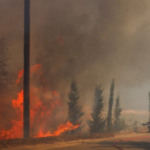On the 75th anniversary of its official adoption, the Geneva Conventions, which set the rules of war, remains the most recognized international treaty. However, from the conflict in Gaza to Syria, from Ukraine to Myanmar, this framework for the protection of civilians, prisoners, and wounded soldiers during war is largely being ignored. Advocates are calling for renewed commitment to uphold international law.
The Geneva Conventions, ratified by nearly all the world’s states since its drafting on August 12, 1949, finds itself in a challenging position. Militant groups and regular armies regularly flout the laws of war.
Mirjana Shpoljarič, President of the International Committee of the Red Cross, states that “international humanitarian law is under pressure.”
“International law is being disregarded. It is being undermined to justify violence. More than ever, the world must recommit to respecting this framework that offers protection during armed conflict, based on the premise of protecting life, not justifying death,” says Shpoljarič.
The roots of the Conventions stretch back to the 19th century. Their purpose is to define the rules of war: they prohibit torture and sexual violence, ensure humane treatment of prisoners, and require parties in conflict to seek missing persons.
According to Shpoljarič, the Convention “has stood the test of time” and reflects “an international consensus that every war must have limits.” She adds that “dehumanizing enemy combatants and civilian populations leads to destruction and catastrophe.”
“The fourth part of the Convention, which provides much-needed protection for civilians after World War II, was considered a miracle at the time of its adoption. But despite universal support, non-compliance remains a serious problem. Even when parties claim to respect each other, overly narrow interpretations hinder its effectiveness. Therefore, I call today for states to make adherence to the Geneva Conventions a political priority everywhere,” she says.
According to the Red Cross, there are currently over 120 active conflicts worldwide, a sixfold increase since the Convention’s 50th anniversary in 1999.
“Today, there are over 120 conflicts recorded by my organization, and while governments and media focus on the devastation in Ukraine and Gaza, armed conflicts elsewhere in the world are equally shocking. Violence in Ethiopia has caused hundreds of thousands of casualties. The war has forcibly displaced 8 million people in Sudan and 6 million in Congo. Ongoing conflicts in Mali, the Central African Republic, Colombia, Mozambique, Myanmar, Syria, and Yemen have a high human cost,” Shpoljarič stated.
Currently, many states and armed groups exploit the shortcomings of international humanitarian law and interpret it to suit their needs.
Hospitals, schools, and ambulances have been targeted in attacks, and aid workers and civilians continue to be killed, while states deny access to prisoners.
According to Shpoljarič, international relations are shifting away from cooperative agreements towards defense spending and conflict preparation, moving towards a divisive approach that she argues comes with a high cost.
She added: “Given this situation, I ask a simple question: where are the peacemakers?” /VOA







